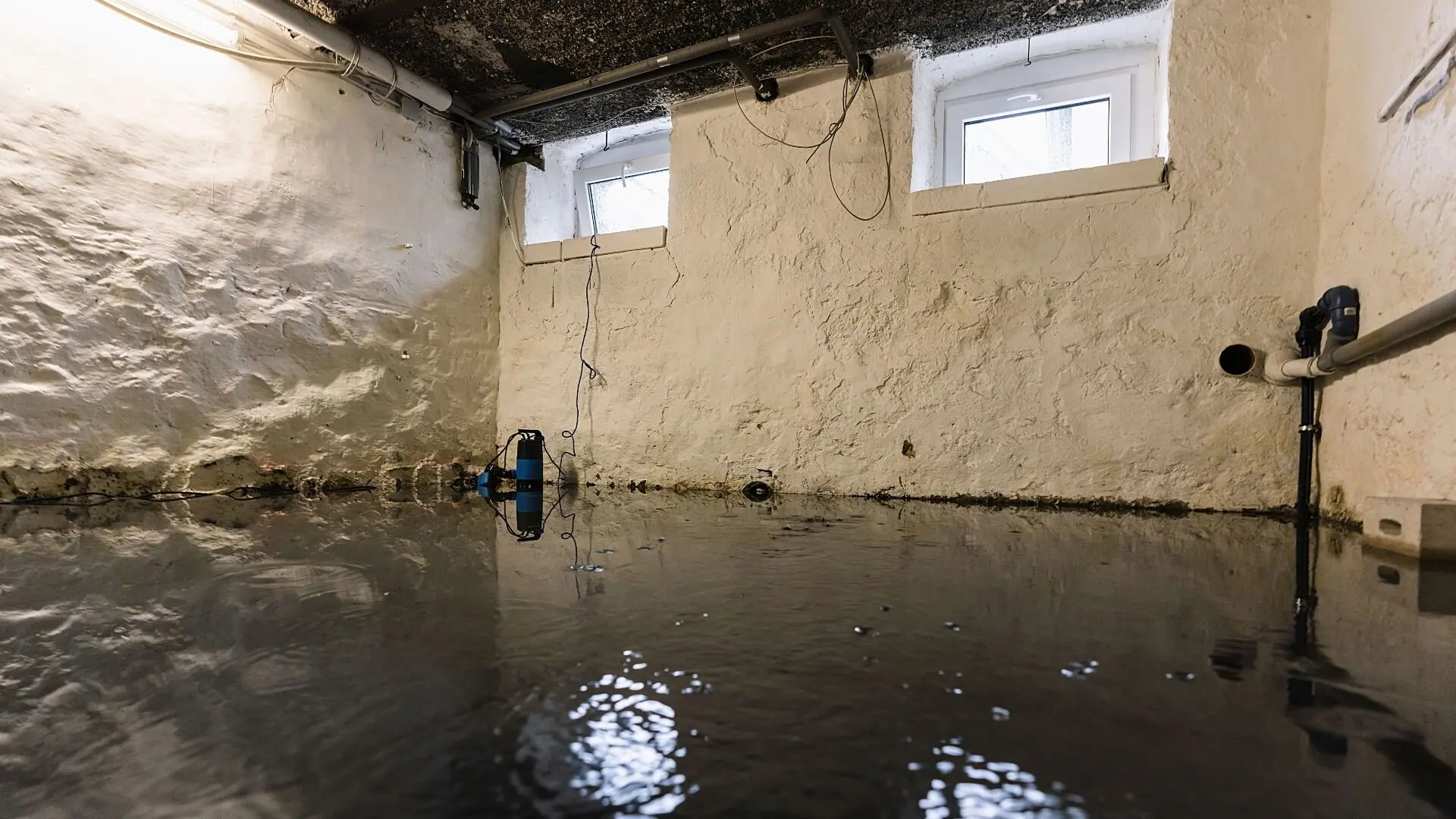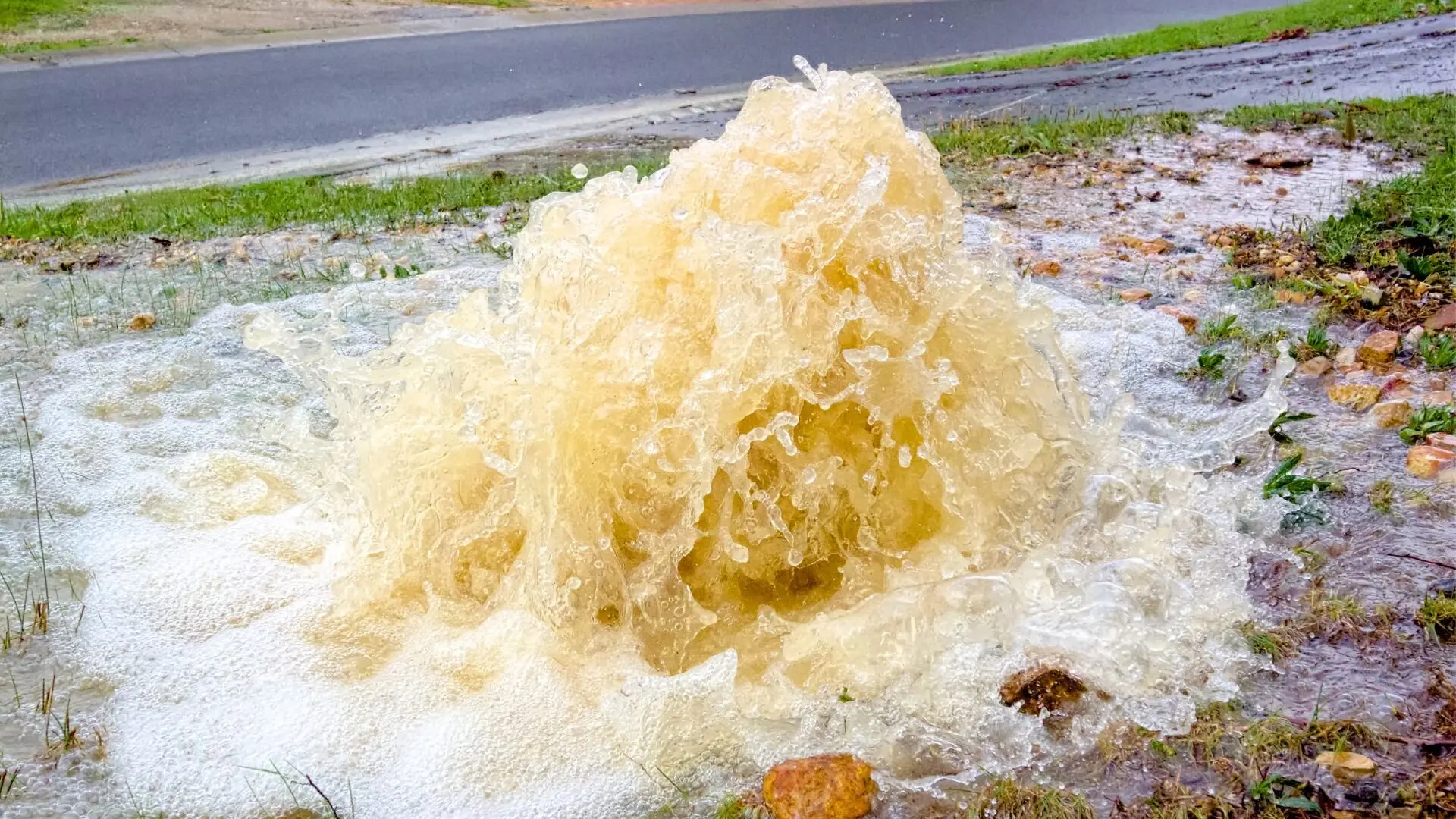A sudden roar shatters your evening in your strata unit. Rushing out into the hallway, you’re met with a scene of chaos – a burst pipe spewing water everywhere in a common area. The potential for damage is high – ruined property, mould growth, and disruption to residents.
Knowing who’s in charge of repairs when something goes wrong is essential. Is it the strata managers or the owners corporation? This guide will walk you through how to manage burst pipes in shared areas. You’ll learn what steps to take and who picks up the tab.
Who’s Responsible? Understanding Strata Plumbing Liability
In Australian strata schemes, shared ownership comes with shared responsibility. This applies to strata plumbing as well. Understanding the concept of common property is crucial. Common property refers to all the shared areas and assets within a strata complex, like hallways, stairwells, roofs, and – you guessed it – plumbing infrastructure.
The responsibility for strata plumbing is shared between the owners corporation (or body corporate) and individual lot owners. The owners corporation typically handles plumbing in common areas, like pipes in external walls, under floors between units, and those serving multiple units. For instance, if a leaking pipe in the foundation damages several apartments, the owners corporation would handle the repairs.

Individual lot owners, on the other hand, are responsible for plumbing within their own unit’s airspace. This includes pipes behind internal walls, bathroom and kitchen fixtures like sinks and toilets, and even the dishwasher’s water connection. Imagine a burst kitchen sink pipe causing water damage that flows down and affects the unit below. The lot owner of the faulty sink would be responsible for repairs to their own kitchen, while the owners corporation might be responsible for any water damage in the unit below, depending on whether the leak originated from common property.
However, navigating strata plumbing can get tricky. Strata schemes have their own by-laws that outline specific details on plumbing responsibilities. These by-laws might differ from the general guidelines mentioned here. For instance, some by-laws might state that the owners corporation is responsible for repairing the hot water system, even if it’s located within a single unit.
If you run into plumbing issues at your strata property, like a blocked drain in your unit or a suspected leaking pipe in a common area, make checking the strata scheme’s by-laws your first move. They’ll clarify who’s responsible for repairs and who might cover the costs for any water damage. Keep in mind, both the owners corporation and individual lot owners might have insurance for plumbing issues. It’s wise to consult your insurance provider to know what’s covered.
Taking Action: A Step-by-Step Guide for Residents on Managing a Burst Pipe in a Strata Building
Finding a burst pipe in your strata building can be quite the shock. Acting fast is essential to avoid serious water damage to the property, especially to internal walls and adjacent units. Here’s how residents can swiftly tackle these plumbing problems:
Step 1: Turn Off the Water Supply
First and foremost, locate and turn off the main water shut-off valve to stop the water flow. This valve is typically found near the boundary wall of the building. If you’re unsure about how to safely turn off the water, contact your building manager immediately to avoid any further damage.
Step 2: Alert the Strata Committee or Building Manager
Once the water is off, immediately notify the strata committee or the building manager. Reporting can be done via phone calls, emails, or an emergency hotline if your strata scheme provides one. Quick communication ensures that the necessary repairs can be initiated without delay.
Step 3: Document the Damage
Take clear photos and videos of the burst pipe and any resulting damage, including floors and walls. This documentation is vital for the strata management to assess the extent of repairs needed. It is crucial for any potential insurance claim through the strata’s capital works fund or administrative fund.
Step 4: Vacate the Affected Area
If safety is compromised—due to risks like electrical hazards from water contact—it’s important to vacate the affected area. Follow the instructions provided by the strata managers or body corporate, who are responsible for overseeing major repairs and maintenance in common areas, such as swimming pools or blocked drains.
Additional Considerations
If the damage is contained within just one apartment, the individual lot owner may need to address it separately, often coordinating with the strata committee for common repairs.
Property owners should be aware that while some incidents are covered under the body corporate’s insurance, others may need separate attention, especially if it pertains to personal property damage.
The Strata Committee’s Role in Managing Burst Pipes
When a burst pipe occurs within the common areas of a strata scheme, the strata committee must act promptly and efficiently to manage the situation. This responsibility is crucial for the property’s structural integrity and its residents’ well-being.

Step 1: Engage a Licensed Plumber
The first step is to engage a licensed plumber experienced in handling strata plumbing. Only a qualified professional should address the plumbing problem to ensure the repairs meet the necessary standards and prevent further water leaks. Using experts helps accurately diagnose the issue, which involves burst pipes, and ensures that the plumbing maintenance is performed correctly.
Step 2: Assess the Damage and Obtain Quotes
Following the immediate intervention, the committee must assess the damage caused by the water leak. This involves thoroughly inspecting areas such as boundary walls, floors, and other potentially affected structures within the strata buildings. It’s essential to obtain multiple quotes for the repair work to ensure cost-effective yet efficient solutions are chosen, thereby maintaining the integrity of the strata property and preventing water damage in the future.
Step 3: Communicate with Residents
Effective communication is key. The strata committee, often assisted by a strata manager, should keep all owners and residents informed about the nature of the water damage, expected repairs, and any anticipated disruptions. This transparency helps manage expectations and minimises residents’ inconvenience.
Step 4: Coordinate Repairs and Claim Insurance
The final step involves coordinating the repair works and, if applicable, making insurance claims. The strata committee should oversee the repair process to ensure it is completed to a high standard. If the body corporate’s insurance covers the property damage, the committee must work closely with the insurance provider to cover the costs. This helps manage the financial impact on the strata scheme and ensures that all repairs are carried out promptly to mitigate risk factors like mould growth, which can result from delayed actions.
In all these steps, the committee must act diligently to uphold the owners’ interests, ensuring the professional maintenance of their units and the broader strata scheme. This proactive approach to managing such incidents helps maintain the property value and quality of life for all lot owners.
Proactive Maintenance Strategies To Prevent Burst Pipes
Preventative maintenance in strata plumbing systems within strata properties offers significant benefits, chiefly preventing the costly and disruptive issue of burst pipes. By implementing routine checks and upkeep, strata buildings can avoid extensive damages, ultimately saving money and enhancing the lifespan of the plumbing infrastructure.
The strata committee should schedule regular inspections by licensed plumbers. Such proactive measures ensure potential issues, such as a minor water leak, can be identified and addressed before escalating. Additionally, prompt repair of these issues protects the structure and functionality of each floor and prevents damage to individual units, safeguarding the investment of each lot owner.
It’s vital for residents to keep an eye out for signs like low water pressure or odd sounds. Spotting issues early means quicker fixes, preventing problems from growing. Also, it’s important to clarify who covers different repairs, ensuring everyone’s on the same page and can act fast when plumbing issues crop up. Working together, residents and the strata committee can maintain a smooth-running plumbing system throughout the property.
Don’t Let a Burst Pipe Disrupt Your Life
Burst pipes in strata common property require prompt and skilled attention to prevent extensive water damage. The corporate body is pivotal in coordinating the repair process, ensuring that water leaks are swiftly addressed to mitigate damage to floors and other shared areas within strata properties.
Engaging a professional plumbing service like Fixed Today can offer the expertise necessary for effective resolution. Fixed Today provides 24/7 emergency services, ensuring that urgent plumbing issues are promptly tackled, day or night. If your strata property experiences any burst pipe concerns, consider reaching out to Fixed Today for reliable and efficient solutions.














